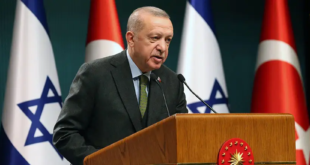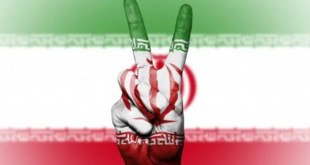EUROPEAN UNION foreign policy chief Javier Solana embarks on a Mideast charm offensive Monday to calm protests over controversial Prophet Mohammad cartoons, and to limit the diplomatic fallout from the row.
The shock Hamas victory in Palestinian elections will also doubtless be high on the agenda during the four-day, five-stop trip which will take him to Saudi Arabia, Egypt, Jordan, the Palestinian territories and Israel.
Commentators say the cartoons row could not have come at a worse time, set against turmoil in the Middle East peace process and escalation of the Iran nuclear crisis, with some suggesting the protests could be linked.
“He will be meeting leading figures of the Arab and Islamic worlds for talks aimed at promoting dialogue and restoring further relations of friendship and mutual respect between Europe and the Islamic world,” Solana’s office said.
The cartoon row, sparked by the publication last September of the controversial drawings in a Danish newspaper including one with a turban shaped as a bomb, pits Europe’s defence of free speech against Muslims who see them as insulting.
The publication, repeated by newspapers in a number of European countries, sparked protests across the Muslim world over the last two weeks, including several which turned violent.
While the protests have largely calmed down, the diplomatic consequences remain unclear.
During the trip starting in Riyadh, Solana will meet Saudi King Abdullah, Organisation of the Islamic Conference chief Ekmeleddin Ihsanoglu, Egypt’s Hosni Mubarak, Arab League head Amr Musa, King Abdullah as well as Palestinian leader Mahmoud Abbas and Israeli Foreign Minister Tzipi Livni.
Solana’s main aim will be to listen to protests about the cartoons, while trying to explain Europe’s position as uncontroversially as possible. But it is clear that the tension generated by the dispute between Europe and the Muslim world does not help the Europeans’ position at a crunch time on key diplomatic fronts in the region.
Aides confirmed that Solana will talk with Abbas and Livni about the Mideast peace process, clouded by Hamas’ ballot win as well as Israeli Prime Minister Ariel Sharon’s incapacitation and the power vacuum it leaves until March polls.
The EU, the biggest provider of funds to the Palestinians, also vowed to continue that support — but only so long as Hamas renounces violence and recognises the state of Israel.
The 25-nation bloc is clinging to the hope that Hamas will change its ways, and Solana will be keen to try to prevent the cartoon row tipping the organisation’s balance in the wrong direction as it forms a new government.
While not formally on the agenda, Iran will no doubt be on everyone’s minds in Solana’s talks this week.
The EU last month agreed to refer Tehran to the UN Security Council over its nuclear plans, which the United States claims conceal efforts to develop atomic weapons.
That crisis is also delicately balanced, with international efforts striving to avoid further deterioration in the confrontation with Tehran. Again, the cartoon row has only fuelled the tension.
The three issues — cartoons, Hamas and Iran — could even be linked: There have been suggestions that either Hamas or Tehran or both have fuelled Muslim protests over the drawings as a way of rallying support for their own causes.
Iran on Sunday rejected US and Danish accusations that it has inflamed and encouraged violent protests over the caricatures.
Iran was responding to comments by US Secretary of State Condoleezza Rice, who said last week: “It is well known that Iran and Syria bring protesters into the streets when they wish to make a point.”
Foreign ministry spokesman Hamid Reza Asefi singled out Rice’s comments and also said Denmark should apologise to help calm the furor.
“What happened was a natural reaction. Rice and Danish officials should apologise. Such comments could worsen the situation and an apology could alleviate the tension,” Asefi said.
He spoke a day before one of Iran’s largest newspapers was to open a contest seeking caricatures of the Holocaust. Hamshahri newspaper said it wanted to test whether the West extends its principle of freedom of expression to the Nazi genocide as it did to the caricatures of the prophet.
 Eurasia Press & News
Eurasia Press & News



